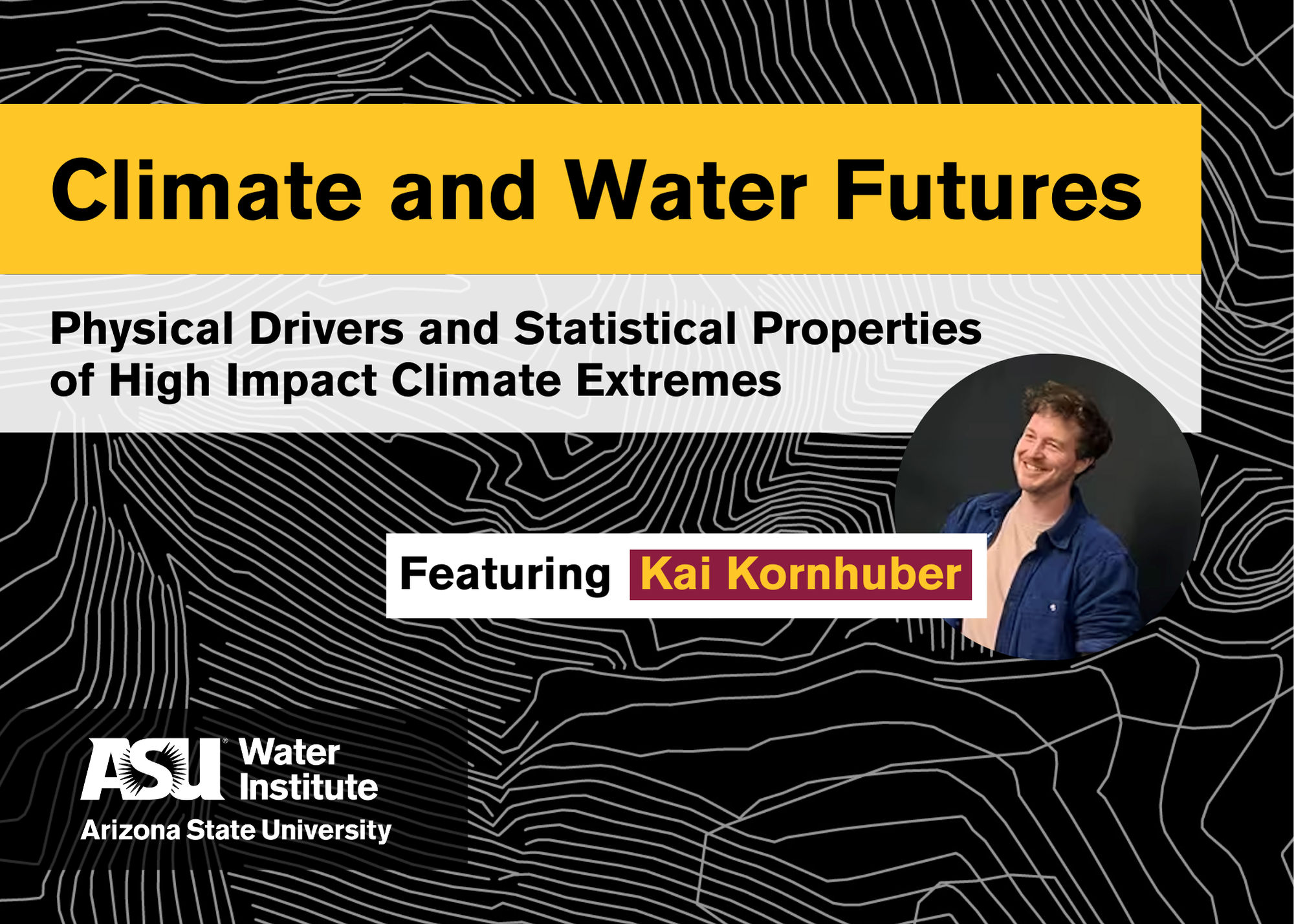Climate and Water Futures: Physical Drivers and Statistical Properties of High Impact Climate Extremes

Event description
- Academic events
- Free
- Science
- Sustainability
About the talk
Accurately modeling emerging physical climate risks to natural and societal systems—such as global supply chains, the food system, health, and critical infrastructures—is essential for effective preparedness and honest discussions about the consequences of rising greenhouse gas emissions.
A series of anomalous weather events that shattered previous records by wide margins have again highlighted the need for an improved understanding of the physical processes behind weather and climate extremes, their statistical characteristics, and our ability to project them using climate models.
In this lecture, Kai Kornhuber will present an overview of recent studies and preliminary findings that explore the mechanisms and physical drivers of high-impact climate extremes, as well as their statistical characteristics, such as simultaneous or sequential occurrences, which can lead to high societal impacts under current and future climate conditions, and reflect on our capacity to reproduce such events in climate models.
About the speaker
Kai Kornhuber is a senior research scholar in the Integrated Climate Impacts Research Group of the IIASA Energy, Climate, and Environment Program, where he leads the theme Extreme Weather and Climate Dynamics. Within this theme he is advancing the understanding and modeling of high impact and compound extreme weather events to provide robust estimates of complex and cascading climate risks under present conditions and future climate scenarios.
He also works as adjunct professor of Climate at the Columbia Climate School. As part of this role, he teaches complex climate risks at Columbia University in New York and serves as an adjunct assistant research scientist at the Lamont-Doherty Earth Observatory. He is also an associate fellow at the German Council on Foreign Relations (DGAP), where he regularly provides his expertise to political discourse around adaptation and mitigation strategies.
In addition, Kornhuber is co-chairing the Risk Knowledge Action Network, a joint initiative of World Climate Research Programme (WCRP), World Weather Research Programme (WWRP), Future Earth, and Integrated Research on Disaster Risk (IRDR). He is a founding member of the Earth Network on ”Sustainable and Resilient Living in an Era of Increasing Disasters” at the Columbia Climate School. As affiliated scientist at the Potsdam Institute for Climate Impact Research (PIK), he leads the project PERSEVEREwithin the ClimXtreme Consortium that investigates the dynamics of extreme heat events. He is further Editor of the Copernicus Journal Earth System Dynamics.
After completing his doctorate in climate physics (summa cum laude) at the University of Potsdam and the Potsdam Institute for Climate Impact Research (PIK), for which he was awarded the Carl Ramsauer Award, he continued his research on the societal risks of current and future extreme weather and climate events as a postdoctoral researcher at the department for Atmospheric, Oceanic, and Planetary Physics, University of Oxford and at the Earth Institute, Columbia University, New York. Before starting his position at IIASA, he worked as a senior scientist and group lead at Climate Analytics Berlin and as a senior research fellow at the German Council on Foreign Relations. For his achievements in the field of Climate, Past, Present, Future he received the Early Career Researcher Award of the European Geoscience Union in 2025.